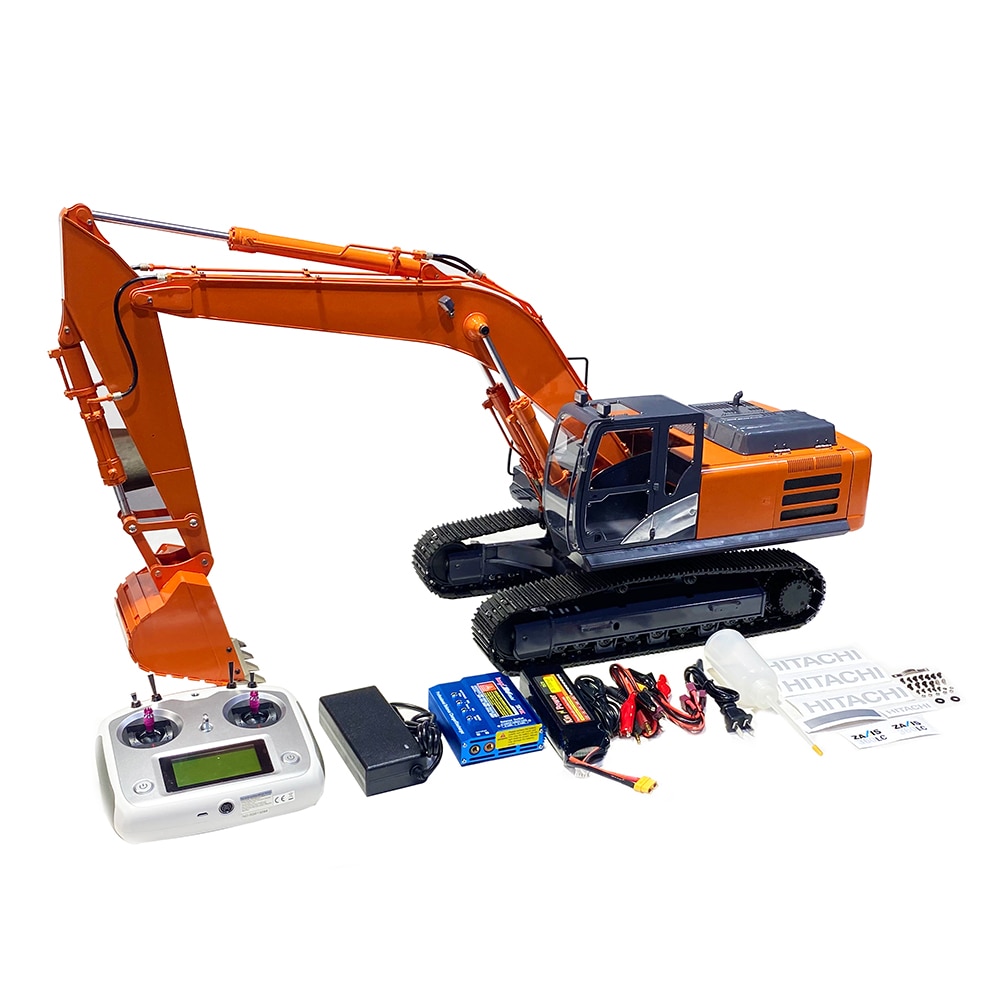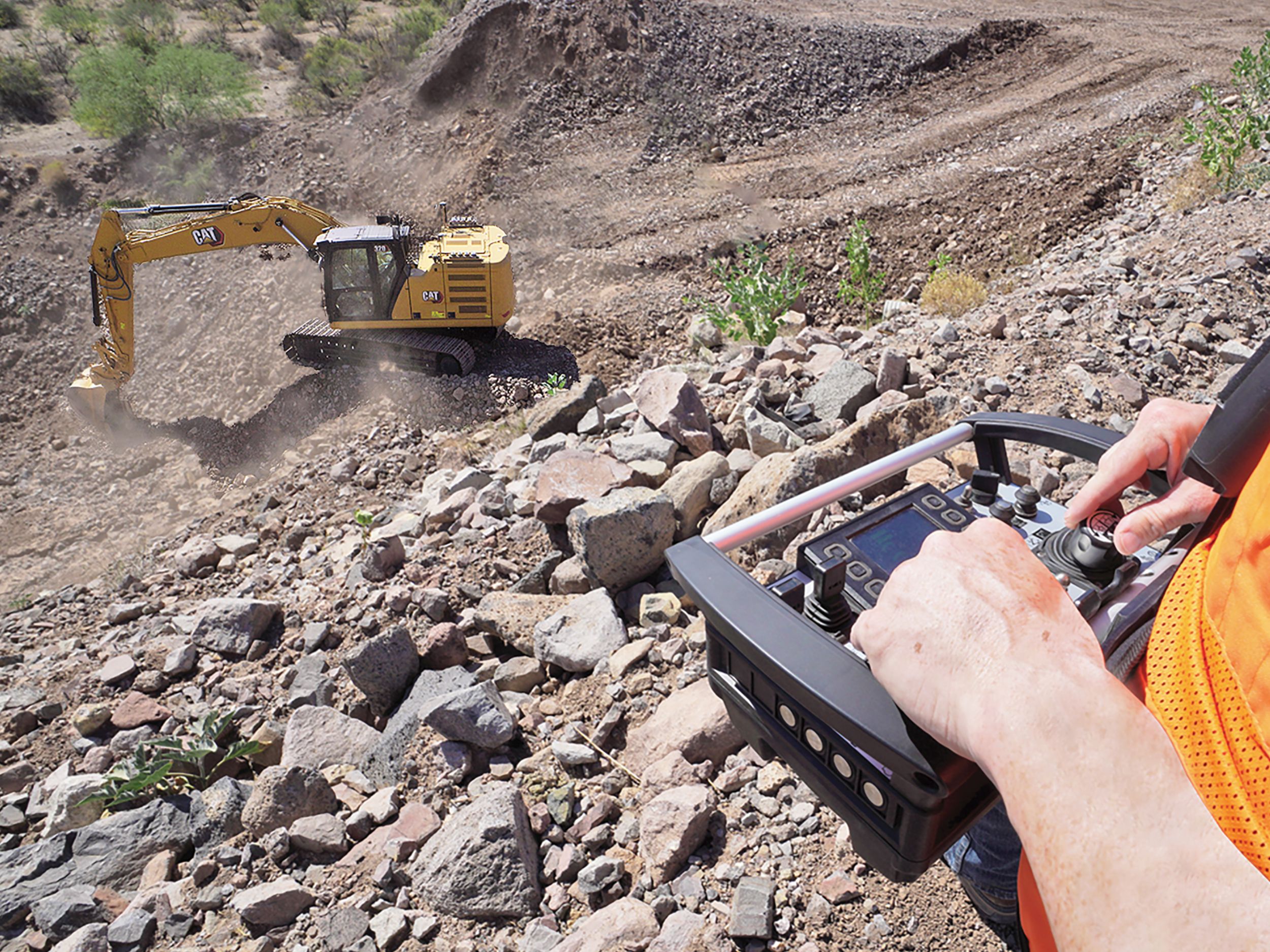Discover the Value of Excavator in Modern Construction Projects
Excavators are necessary tools in modern building and construction projects. Their adaptability permits them to do a wide variety of jobs, from digging and grading to demolition and site preparation. Advanced attributes, such as hydraulic add-ons and GPS, boost their capabilities and performance on job sites. As the industry evolves, the value of excavators grows also much more. Recognizing their role can reveal understandings right into the future of building practices. What lies ahead for these makers?
The Adaptability of Excavators in Different Projects
Although excavators are typically linked with large-scale building and construction tasks, their adaptability allows them to be utilized in a broad variety of applications, from residential landscape design to energy upkeep. In urban settings, excavators can navigate limited spaces to dig structures for homes or set up drainage systems. Their capacity to perform delicate jobs makes them excellent for landscaping projects, where they can dig deep into for ponds or plant trees. Additionally, excavators play a vital function in energy maintenance, successfully excavating trenches for pipes or wires without interfering with surrounding areas. In farming applications, they aid in land cleaning and soil preparation. Their adaptability enables them to be equipped with different accessories, boosting their capability across different tasks. This multifaceted nature of excavators not just improves numerous building and construction procedures but also shows their indispensable role in contemporary facilities growth and upkeep.
Secret Features and Kinds of Excavators
The discussion on essential features and kinds of excavators highlights the crucial features that make these equipments vital in construction. Various excavator types, each designed for particular jobs, show their versatility and efficiency across various applications. rc excavator. Recognizing these categories and attributes is vital for enhancing their usage in modern-day building and construction projects
Excavator Enters Summary
Excavators play a pivotal role in contemporary construction, supplying adaptability and performance throughout various jobs. These heavy equipment devices come in several kinds, each customized for certain applications. One of the most typical types consist of spider excavators, known for their security on uneven terrain, and wheeled excavators, which supply higher mobility on paved surfaces. Mini excavators are preferred for limited areas and small-scale tasks, while long-reach excavators are designed for deep digging. In addition, there are customized excavators, such as hydraulic excavators, which improve power and accuracy. Each kind features distinct abilities, making them necessary for jobs ranging from digging and grading to demolition and material handling. Recognizing these variations allows building specialists to select the best excavator for their project requires.
Secret Includes Explained
Comprehending the vital attributes of excavators boosts their effective application in building and construction tasks. Excavators are identified by their effective hydraulic systems, which supply the needed pressure for excavating, training, and relocating materials. Their expressed arms enable for a wide variety of motion, helping with specific procedures in confined rooms. Additionally, the selection of attachments, such as containers, grapples, and augers, increases their convenience to satisfy different project requirements. The size and weight of excavators additionally add to their stability and maneuverability on different surfaces. Moreover, improvements in technology have actually brought about the combination of general practitioner and automation, improving accuracy and efficiency in excavation jobs. These features collectively place excavators as important tools in contemporary building.
Applications in Building
Transforming construction sites, excavators play a critical role throughout numerous applications, varying from residential structure tasks to massive framework advancements. These versatile makers are furnished for tasks such as digging foundations, trenching for energies, and site grading. Different types of excavators, including spider, wheeled, and mini excavators, offer specific advantages customized to the project demands. Crawler excavators master harsh terrains, while rolled excavators provide wheelchair on paved surfaces. Tiny excavators are excellent for confined rooms, making them preferred in city setups. The efficiency and power of excavators substantially speed up building and construction processes, ensuring prompt job completion. Their versatility even more improves their value, enabling building and construction teams to take on a diverse range of challenges properly.
Enhancing Efficiency and Efficiency on Job Sites
Maximizing performance and efficiency on task sites is an essential goal in contemporary construction. Excavators play a crucial function in attaining this goal by simplifying different tasks. Their capability to do several functions-- such as grading, training, and digging-- reduces the requirement for additional devices, thus saving time and resources.Moreover, excavators enhance workflow by permitting faster conclusion of jobs. With advanced attributes like hydraulic add-ons and general practitioners modern technology, they can carry out exact operations that minimize errors and remodel. This accuracy not just enhances the high quality of work but likewise enhances material usage, adding to cost savings.The convenience of excavators allows them to adjust to various website conditions, ensuring that jobs progress efficiently regardless of challenges. By integrating excavators right into building and construction processes, teams can substantially increase their overall efficiency, causing prompt project completion and raised success.
Security Advantages of Utilizing Excavators
Excavators considerably boost security on building and construction websites via boosted operator exposure and reduced hands-on labor dangers. By supplying drivers with a clear view of their environments, excavators help to avoid accidents and injuries. In addition, the equipment minimizes the need for employees to participate in harmful hands-on jobs, additionally promoting a much safer work setting.
Improved Operator Exposure
Building and construction sites can be chaotic and filled with potential threats, boosted operator presence plays a crucial duty in making certain safety and security when using excavators. Modern excavators are created with huge, unobstructed windows and strategically placed mirrors, enabling drivers to preserve a clear view of their surroundings (rc excavator). This enhanced exposure is essential for identifying pedestrians, various other machinery, and different challenges, considerably decreasing the risk of mishaps. In addition, lots of excavators integrate sophisticated technology, such as sensing units and cameras, to give drivers with additional point of views, better enhancing recognition. The capability to see more plainly not only aids in effective procedure however additionally fosters a more secure workplace, making it less complicated for drivers to navigate complex building and construction sites without jeopardizing security standards
Reduced Manual Work Threats
When hand-operated labor is decreased through using excavators, many security advantages arise, substantially improving the wellness of building and construction employees. Excavators why not try this out lessen the physical pressure linked with hefty lifting and repeated tasks, efficiently decreasing the risk of musculoskeletal injuries. By automating processes such as excavating, grading, and moving materials, they allow workers to maintain a more secure distance from prospective risks. Furthermore, excavators are equipped with advanced security functions, such as rollover security systems and improved driver ergonomics, which even more safeguard workers on website. The result is a considerable reduction in work environment mishaps and injuries, bring about increased efficiency and morale among building teams. Eventually, the adoption of excavators adds to a safer and more reliable building and construction setting.
Excavators in Earthmoving and Site Preparation
In modern-day building, a substantial section of earthmoving and site prep work jobs depends on the efficiency and adaptability of excavators. These makers are designed to handle numerous dirt kinds and terrain, making them indispensable for grading, digging, and trenching activities. Their hydraulic arms can be geared up with various attachments, such as augers and pails, enabling drivers to personalize their method based upon particular job requirements.Excavators succeed at moving large quantities of earth swiftly and successfully, which speeds up the overall building and construction timeline. They can browse limited areas and challenging websites where typical devices might struggle, boosting performance. Furthermore, the precision of excavators assurances that site prep work follows rigorous specifications, decreasing the danger of mistakes that can result in pricey rework.
The Function of Excavators in Demolition Tasks
Excavators play a vital duty in demolition jobs, as they possess the power and dexterity required to take down structures successfully. Outfitted with various attachments such as hydraulic breakers, shears, and grapples, these devices can adapt to different demolition demands, whether for little structures or big commercial sites. Their flexibility enables drivers to take on intricate projects while maintaining security and precision.In addition to their demolition capabilities, excavators facilitate debris elimination, making certain that job websites stay safe and organized. By damaging down frameworks right into manageable pieces, they enable for structured clearing and recycling of materials, straightening with contemporary sustainability efforts.Moreover, excavators can access limited rooms and navigate unequal terrain, making them indispensable in city demolition tasks. Overall, their robust style and multifunctionality make excavators a crucial property in the demolition phase of building and construction, contributing substantially to job timelines and performance.


Future Fads in Excavator Technology and Use
As the construction sector develops, developments in excavator modern technology are poised to transform their usage and effectiveness considerably. One significant fad is the assimilation of automation and fabricated knowledge, enabling excavators to operate with marginal human intervention. This shift will certainly enhance accuracy in tasks such as grading and trenching, minimizing human mistake and raising productivity.Additionally, the surge of hybrid and electric excavators is shaping an extra lasting construction environment, decreasing carbon exhausts and fuel prices. Enhanced telematics systems are also arising, enabling real-time surveillance of equipment performance and upkeep needs, which can result in far better functional effectiveness and longer equipment lifespan.Moreover, innovations in attachment innovation are expanding the adaptability of excavators, allowing them to carry out a wider series of jobs. The combination of these trends demonstrates a future where excavators are smarter, greener, and much more versatile, ultimately reshaping building and construction job dynamics.
Regularly Asked Inquiries
How Do Excavators Contrast to Various Other Construction Machinery?
Excavators, characterized by their flexibility and power, master digging and earthmoving contrasted to other equipment. Their capability to carry out different jobs, including lifting and demolition, makes them essential in building and construction projects, boosting total efficiency.

What Is the Average Lifespan of an Excavator?
The typical lifespan of an excavator normally ranges from 7,000 to 10,000 operating hours, relying on upkeep, try this usage conditions, and version. Proper treatment can expand this life-span, ensuring peak efficiency throughout its operational years.
How Are Excavators Preserved for Optimal Performance?
Excavators need routine maintenance for peak efficiency, consisting of regular assessments, liquid checks, filter substitutes, and prompt repairs. Carrying out a precautionary maintenance routine helps prolong their life expectancy and guarantees efficient procedure in different building and construction environments.
What Are the Costs Connected With Buying an excavator vs. renting?
The expenses connected with renting versus acquiring an excavator vary significantly. Renting out offers reduced upfront costs yet can gather with time, while buying calls for a substantial preliminary investment, yet supplies long-lasting savings and property possession advantages.
What Training Is Needed to Operate an Excavator?
Running an excavator calls for specialized training, commonly including safety and security protocols, device operation strategies, and environmental understanding. Qualification programs commonly mandate useful experience, enabling operators to deal with various tasks effectively while making sure conformity with industry laws. The most typical kinds consist of spider excavators, known for their stability on uneven surface, and wheeled excavators, which provide higher flexibility on smooth surfaces. Mini excavators try this are favored for limited spaces and small-scale projects, while long-reach excavators are designed for deep excavating. In addition, there are customized excavators, such as hydraulic excavators, which improve power and precision. Different types of excavators, including spider, wheeled, and mini excavators, give details benefits tailored to the task needs. Spider excavators excel in harsh terrains, while wheeled excavators use movement on paved surface areas.